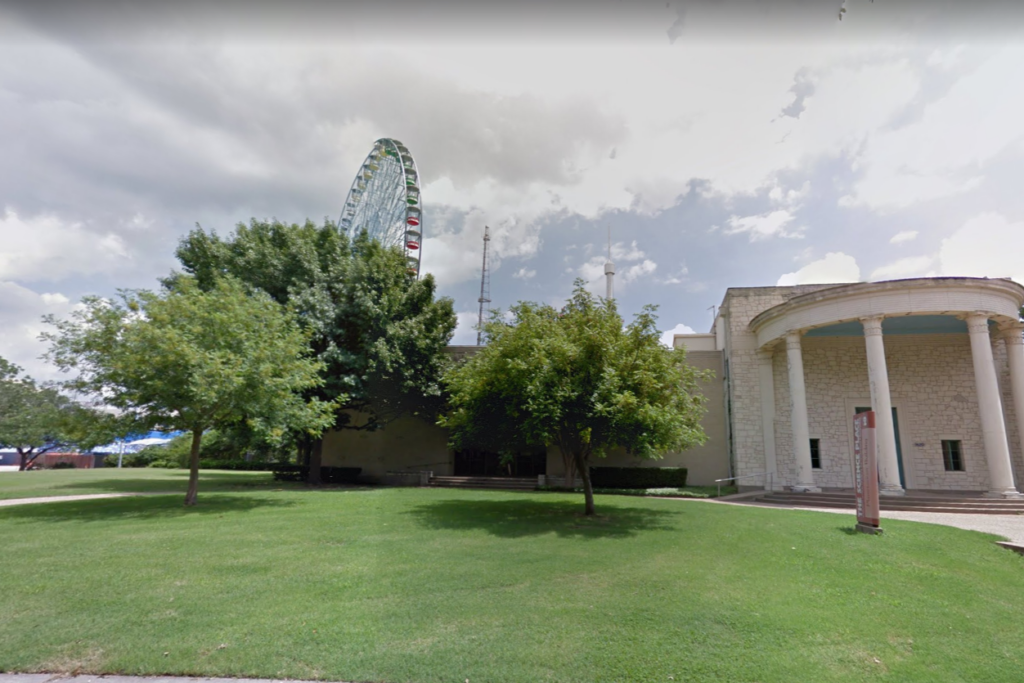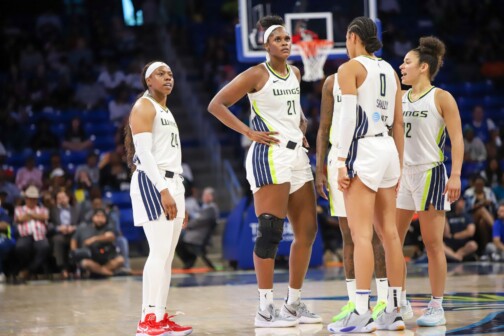Dallas is the only city in the United States that owns its own radio station, which is one of the few commercial classical stations in the country. It’s so old, in fact, that it was only the second station ever licensed by the Federal Communications Commission. WRR has a fascinating history, and the next chapter is about to be drafted.
But it seemed like that chapter might end abruptly when some members of the Dallas City Council entertained the idea of possibly selling the station during a meeting of the Quality of Life, Arts, and Culture Committee in May. It alarmed fans of WRR, who began a campaign to urge the council to stick with a plan to allow KERA to take over the day-to-day operations of the century-old station.
Prior to Wednesday’s vote to approve the deal between KERA and the city, Councilman Paul Ridley said that he had received “literally hundreds” of emails in support of the agreement.
Several council members spoke in favor of the contract before the vote.
“It’s great to have someone to play that (classical music) when you wake up in the morning, and when you go to sleep at night,” Councilman Tennell Atkins said. “You think people don’t listen to it, but they really do.”
WRR marketing director Amy Bishop was one of 10 supporters who spoke during public comment in support of the deal.
“This radio station and the music it plays appeals to the hearts and imaginations of every age, every color, and every nationality,” she said. “You can put a price on a radio station, but you cannot put a price on the community enrichment that comes with keeping WRR if you just give it and KERA a chance to show you.”
All that worry was either for nothing or it worked to shift the tide. Even the guy who introduced the sell-off during the May briefing, South Dallas and Fair Park Councilman Adam Bazaldua, voted in favor of the deal during Wednesday’s Council meeting.
“We would absolutely be missing the mark in making a decision to think there’s a dollar amount that could be more valuable than continuing to allow the station to (contribute) to the arts community,” he said.
When it was announced in May that KERA was the preferred bidder to take over the operations of WRR, it seemed like a slam-dunk for everyone involved. The city would retain a historic asset but also get out of the business of running a radio station, which many believe it wasn’t set up to do well.
But Bazaldua (at the time) had other thoughts, questioning the wisdom of the city hanging on to this terrestrial radio station, asking whether it was time to sell before its value dropped. He felt that historically, the station’s purpose was, in part, to help raise more money to support the city’s arts community through advertising sales.
“Times have changed, and we are no longer contributing to that arts endowment,” he said. “I’m looking at this as a question of ‘Is the city of Dallas’ job to own radio stations if we’re not putting money back towards direct resources for our residents’? If we’re not, I think the answer is no.”
According to a memo from the city’s Office of Arts and Culture, the station has a potential value of about $13.4 million. It would take 18 months to two years to complete any sale, and about $7.5 million cash would have been available to the city, with some of that going to a broker commission and about $5.6 million going to paying down WRR’s net deficit.
The station’s enterprise fund expense appropriation is $1.8 million, and revenue last year was $1.3 million. The station is projected to bring in about $1.5 million this year.
Back in May, Bazaldua floated the idea of putting the station up for sale. He suggested that KERA might even want to pay for it.
But that rosy scenario wasn’t guaranteed. For one, should the city put the station up for sale, the city can’t place any sort of stipulations on what kind of format the potential buyer can choose after the sale.
“If the city were to put it up for sale, anybody could bid on it—it wouldn’t just be nonprofit public media,” Nico Leone, President and CEO of KERA explained to me in a phone call shortly after the May committee meeting. “Literally any company, any individual, there are no restrictions on who could actually buy it.
“If you put a broadcast license up for sale, the FCC does not allow you to restrict how it is used by whoever purchased,” he said. “So there is no legal way, if the city chooses to put up for sale, for them to say, ‘It has to be a classical station.'”
KERA could successfully run the station, he said, because it can address some of the bigger reasons why WRR is currently floundering.
To understand that, you have to understand a bit about how advertising sales work. Often, to get those bigger advertisers, there’s a bit of wining and dining involved. Advertising sales is also usually a commission-based endeavor, too. City employees are barred from doing those things And WRR’s sales staff? They are city employees.
By switching the station’s FCC license from commercial to non-commercial, KERA can add WRR into the fold of other member-supported offerings that include two radio stations, a TV station, and its online presence.
“There’s a lot of benefit to the community, to the city, to the audience, and to the arts organizations to having a good classical station,” Leone said. “A problem from the standpoint of the Office of Arts and Culture from a budget standpoint has been they lose money on it in part, because it’s structured as a commercial station. They can’t fundraise, and they’re limited in some other ways by the city running it. We can remove those constraints and make it sustainable.”
But with Spotify, Pandora, Sirius XM, and other streaming services out there, is there really a need for a city-owned terrestrial station?
“We really hope the answer is yes, because that’s our business,” Leone said with a chuckle. “Our business is to provide like high quality, meaningful content, whether it’s news; whether it’s educational programming; or whether it’s music, art, or culture, to everybody.”
Having a terrestrial station is also a matter of equity, he said, explaining that many streaming services are not free, and—as we learned during the pandemic—not everyone in the city has the internet bandwidth capable of reliably supporting them.
Leone also took issue with the idea that there wasn’t a market for classical radio, explaining that while classical radio may not be thriving on the commercial side of the dial, Leone said it was very much still in the game in public radio.
“There’s a group of about 40 stations in public radio that have been working together over the last five to 10 years on an initiative called Classical Music Rising, that’s really been working on best practices and what it means to be a non-commercial classical radio station.
That group, he said, has been looking at everything from how to bring diversity to musical offerings to best fundraising practices that are tailored to drive dollars behind classical music.
A fact sheet from Classical Music Rising provided some statistics about the viability of classical music stations. According to 2016 Nielsen Audio figures, nearly 11 million Americans listen to classical music on public radio each week, with 6.5 million listening to all-classical stations and another 4.2 million listening to stations that offer a combination of classical music and news.
Fall 2016 Nielsen figures showed that the all-classical format has had a stable listenership, too, the organization said. Infinite Dial’s “Share of Ear” 2017 second-quarter report found that AM/FM radio reached 71 percent of Americans daily, and broadcast radio still commanded more than half of the share of time people spent listening to music, compared with online streaming services and their own libraries.
KERA will officially take control of WRR in December, leaving the public radio organization and the city six months to apply to have the station’s license converted from a commercial license to a noncommercial one, and to transition operations over to KERA so it can begin fundraising.
The contract will be good for seven years, with two chances for eight-year renewals, based on the license renewal requirements from the FCC. It is expected that the city will review the success of the project at those times, too.
Author






